Partner in Our Efforts. Make a Year-End Gift Now
Whales, beach cleanups, educational programs… it was our busiest year ever. We are grateful to everyone who supported us!
Although the covid pandemic is still with us, we experienced more of a “new normal” in 2022. Anticipating a busy spring and summer, we increased our staff to make sure we could meet programming needs. But we were still amazed at just how busy we were!
Catch a glimpse of our year through photos in the video below.
Research, the Foundation of our Work
Research has always been the foundation of our work. Over more than 20 years, we’ve strived to collect as much data as we can and share the information with the public and resource managers. We were fortunate to have 9 summer interns assisting us this year. Aboard dedicated survey trips and whale watches, we collected detailed data. This information included whale distribution and behavior. We also recorded human impacts, such as the presence of boats and fishing gear. We identified hundreds of individual whales through natural markings and shared the information with other research organizations. This information helps us learn about whale behavior and life histories. The more we know about whales and the habitats they are using, the better we can protect them.
We also expanded our marine debris research, by analyzing our microplastics data and trying to determine the sources of microplastics littering our beaches. Through strategic partnerships with funders and other organizations, we’re hoping to discover the primary sources of plastics on our beaches and work in 2023 to address the problem.
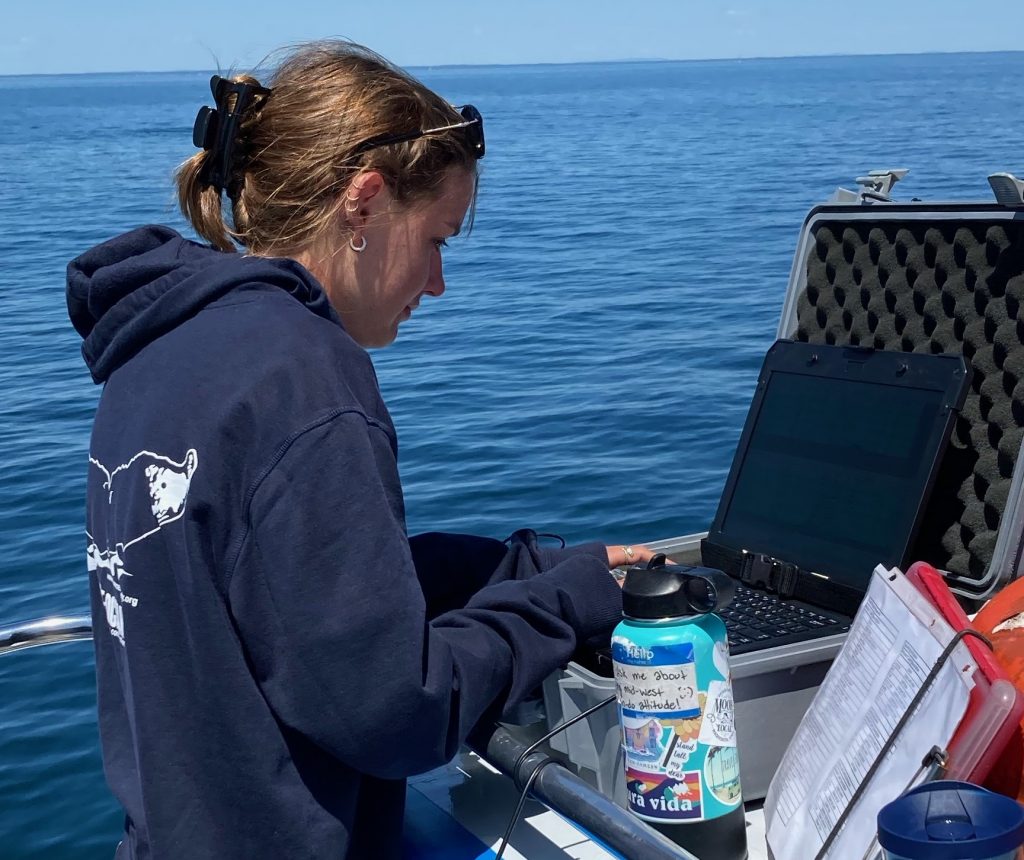
Learning About Whales Through a Life-Sized Model
One thing that contributed to our busy summer was this year’s library summer reading theme, “Oceans of Possibilities.” After two years of storage, our life-sized inflatable whale was brought to life again in libraries across New England. Our educators taught thousands of children about the ocean and the important part that whales play in its health. We were grateful for our partnership with The Whalemobile in helping deliver these programs.
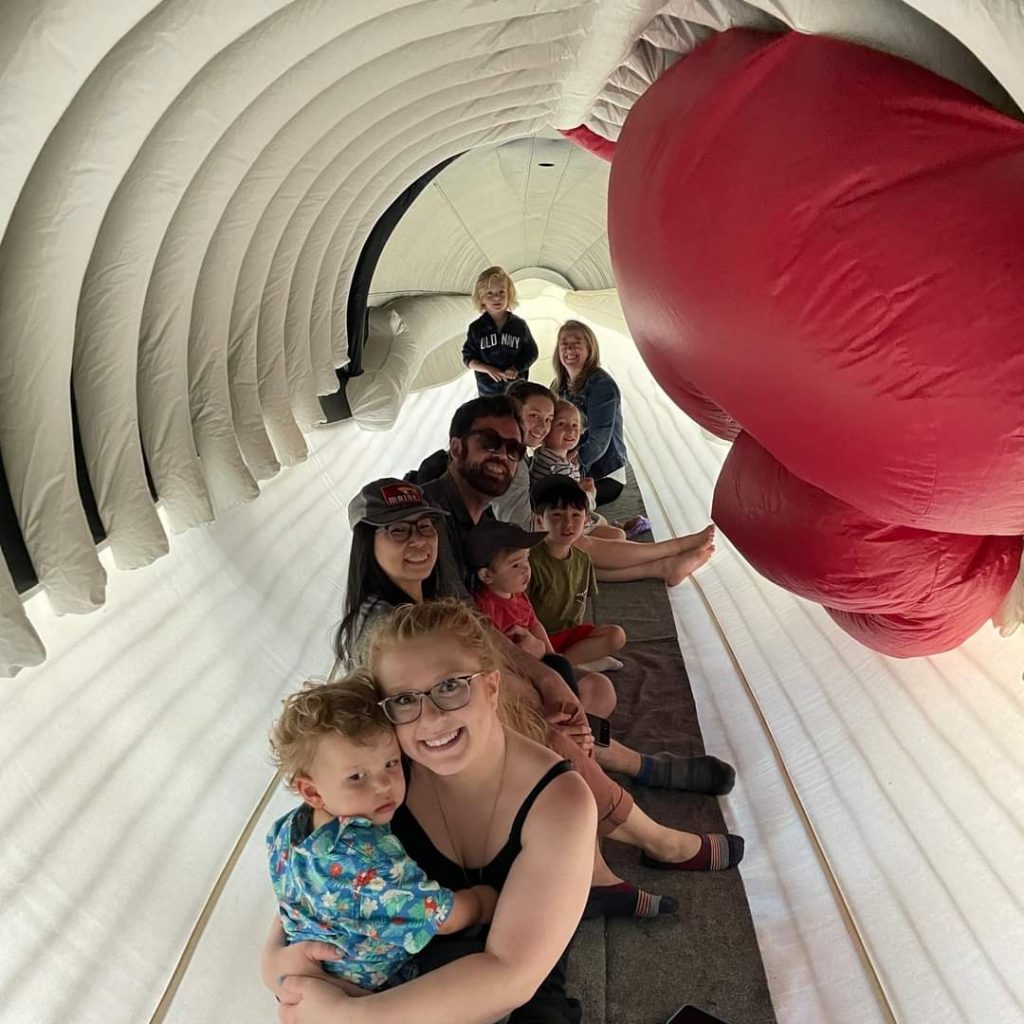
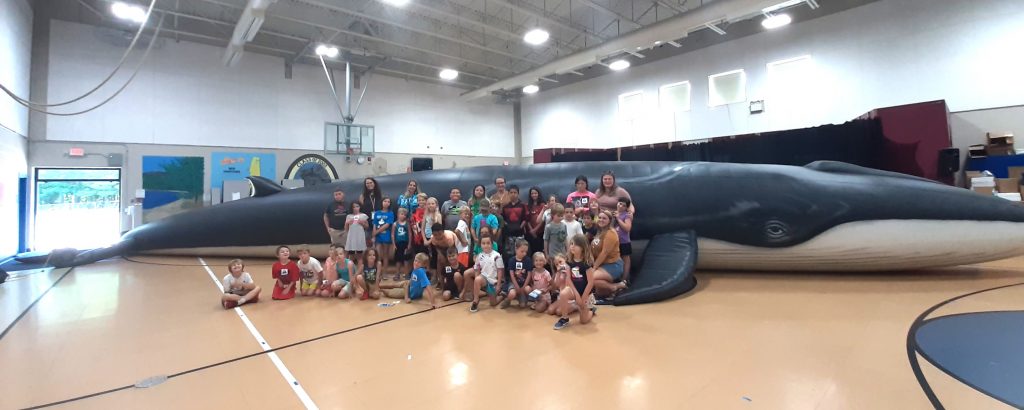
Blue Ocean Discovery Center Hosts More Than 16,000 Visitors
Our Blue Ocean Discovery Center in Hampton Beach received over 16,000 people. Visitors of all ages experienced marine life up close and learned about whales, climate change, intertidal animals, and current issues in the Gulf of Maine. The connections made at our Blue Ocean Discovery Center foster an appreciation of the natural world and better stewardship of our planet.
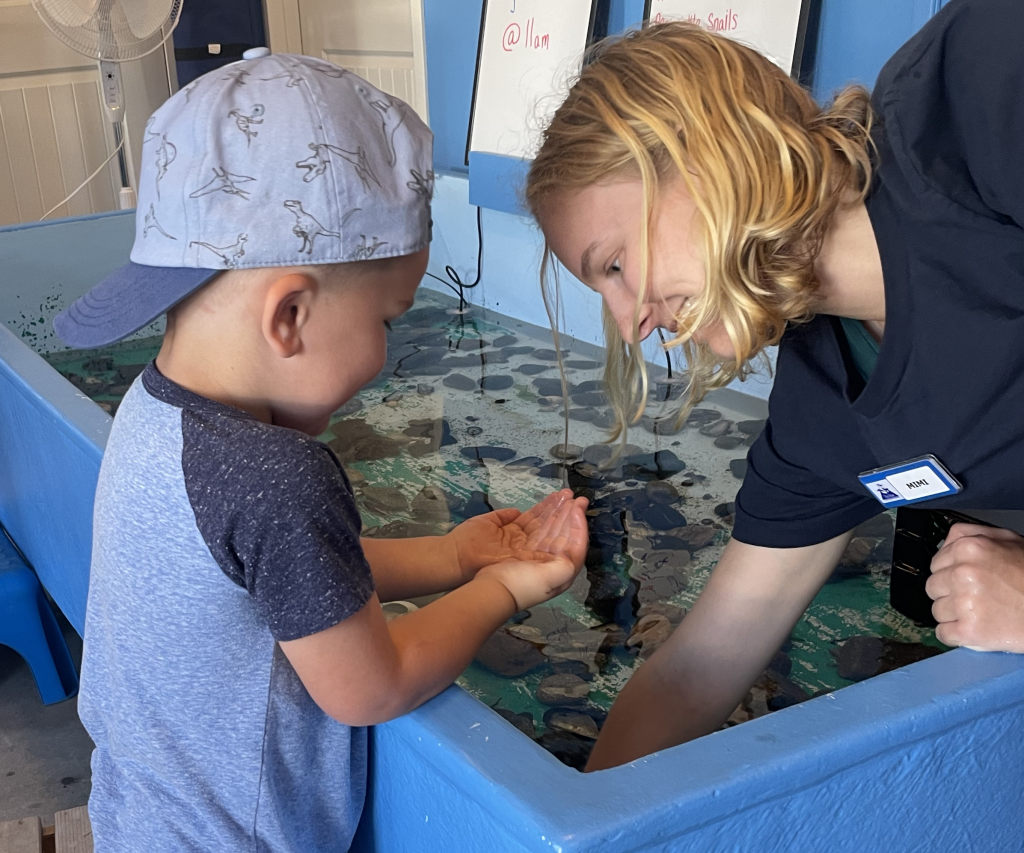
Thousands of Pieces of Litter Removed
We’re in the midst of tabulating all our beach cleanup data, but it’s safe to say that we removed thousands of pieces of litter from local beaches. Thanks to all the volunteers who helped with our beach cleanups! We cleaned beaches from Portland, ME, to Boston, MA. Plastic pollution and other litter can impact wildlife from the tiniest plankton to the largest whales, so every piece removed leads to a healthier Gulf of Maine. We also trained many new beach cleanup leaders. This increased our capacity to host cleanups for groups throughout the year.
Special thanks to everyone involved in our Adopt-a-Beach Program. Since 2004, this program has engaged volunteers in monthly cleanups. With regular cleanups, we’ve seen the volume of plastic pollution on our beaches decrease. Over 20 groups are involved in these cleanups, including individuals, clubs, and businesses such as the Seacoast Paddleboard Club and Tides of Life SUP Yoga.
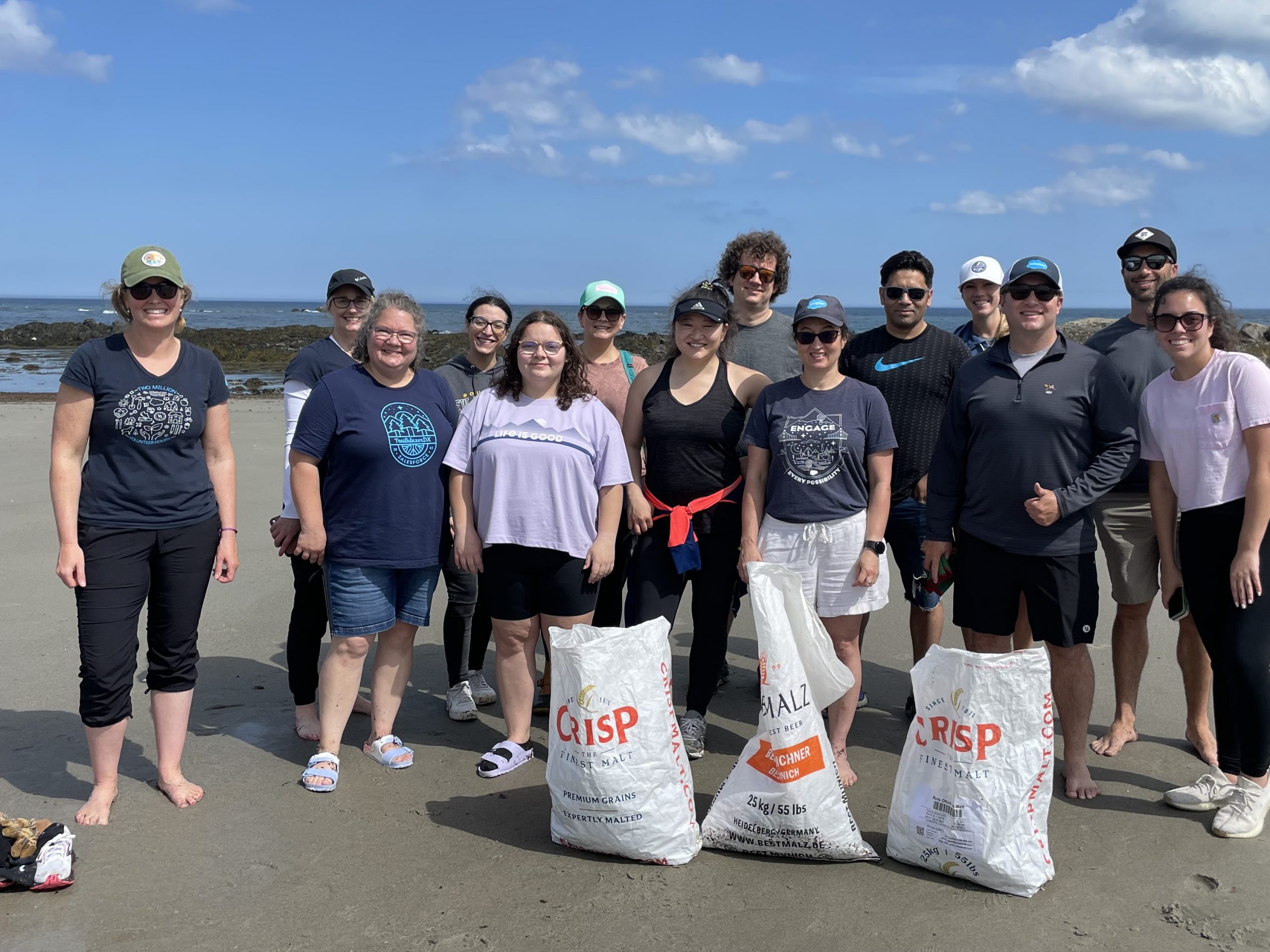
Winter Activities
While we spend more time inside during the winter, it’s still a busy time. We’re in the midst of checking and analyzing our data, developing reports, and using the information we’ve gathered to plan programs for the coming year. We’re excited about 2023 and all the projects ahead!
Plans for 2023
The need for ocean research and education is more important than ever. We’re excited about the New Year and all that we have planned. Here are some of the programs we’ll be working on:
- Expanding our whale research through increasing whale surveys and facilitating citizen science reports of whales. We will have more eyes on the water, especially in the spring and fall, to learn about whale distribution. This information is crucial during a time of more ocean development and exploration (e.g., offshore wind activity) and changes due to a warming ocean.
- Continuing to analyze our microplastics data to determine sources of plastic pollution on our beaches. Use this information to prevent plastic pollution and protect marine life.
- Expanding our beach cleanups to remove harmful litter from our beaches.
- Inspire thousands of people to protect marine life, through interactions at our Blue Ocean Discovery Center, aboard whale watches and at our outreach programs throughout New England.
Partner in Our Efforts. Make a Year-End Gift Now!
Blue Ocean Society for Marine Conservation is a 501(c)(3) non-profit organization. All donations are tax-deductible (tax ID #02-0523308). THANK YOU FOR YOUR SUPPORT!
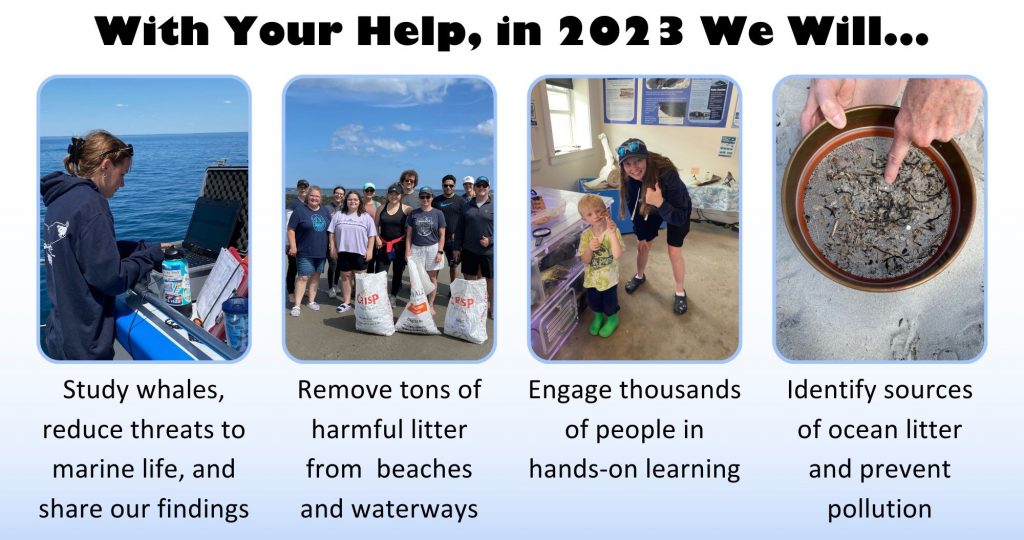

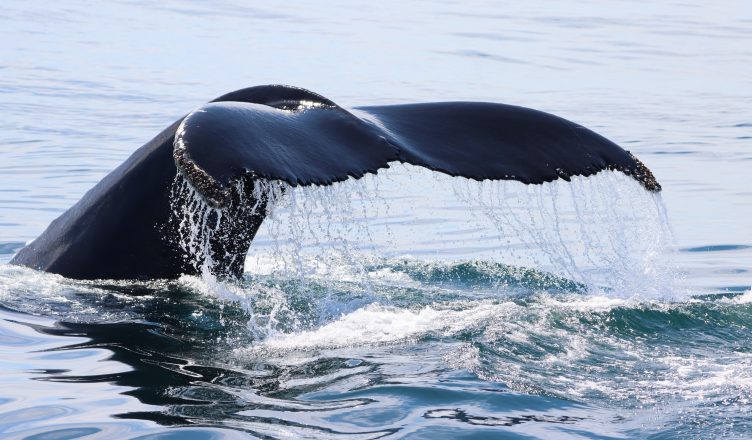





You do great work; thank you!
Unfortunately, we live in Western NY — if we were closer I’d do more, but I hope to be back next summer,
Leigh,
Thank you for your kind words. We hope to see you sometime in the summer. Happy New Year!